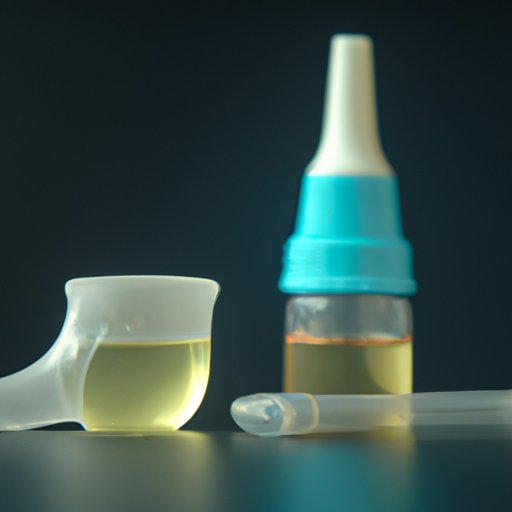How to Stop Post Nasal Drip: Tips and Remedies
Post-nasal drip is a condition that affects millions of people. It occurs when excess mucus builds up in the back of the throat, leading to uncomfortable symptoms like a persistent cough and throat irritation. Fortunately, there are many remedies and treatments available that can help alleviate symptoms. In this article, we will explore some tips and remedies to help stop post-nasal drip and get back to feeling your best.
Understanding the Triggers of Post-Nasal Drip
Post-nasal drip is often triggered by allergies, sinus infections, colds, and other respiratory infections. When these conditions occur, excess mucus is produced to help fight off harmful bacteria or allergens. As a result, the mucus can easily build up in the back of the throat, causing the uncomfortable symptoms of post-nasal drip.
Home Remedies
There are many natural remedies that can be used to help alleviate post-nasal drip symptoms.
One tip is to drink plenty of fluids to stay hydrated. When you are well hydrated, your mucus is thinner and easier to move through the nasal passages. Another helpful tip is to use a humidifier to keep the air moist. This can help soothe nasal passages and reduce mucus production.
Additionally, it is important to avoid allergens that can trigger post-nasal drip. Common allergens include pollen, dust, and animal dander. By minimizing your exposure to these triggers, you can help reduce post-nasal drip symptoms.
Nasal Irrigation
Nasal irrigation is a technique that involves flushing out the nasal passages with a saltwater solution. This can help thin out mucus and remove irritants that may be causing post-nasal drip symptoms. There are a few different methods of nasal irrigation that can be used, including a neti pot or a squeeze bottle.
To use a neti pot, fill the pot with the saltwater solution and tilt your head to the side. Pour the solution into one nostril and allow it to flow out the other nostril. Repeat on the other side.
A squeeze bottle works similarly, but rather than pouring the solution into your nose, you squeeze the bottle to create a steady stream of water. This can help flush out the nasal passages more effectively.
Medicines
If home remedies and nasal irrigation do not provide relief, there are over-the-counter medicines that can be taken to alleviate post-nasal drip symptoms. Antihistamines can be used to reduce the amount of mucus produced, while decongestants can help shrink swollen nasal passages. Nasal corticosteroids can also be used to reduce inflammation in the nasal passages.
It is important to follow the instructions carefully when taking these medications and consult with a healthcare professional if there are any concerns.
Lifestyle Changes
There are also some lifestyle changes that can be made to help prevent post-nasal drip. Quitting smoking can be an effective way to reduce the risk of respiratory infections and improve lung health. A healthy diet and regular exercise can also help boost the immune system and reduce the frequency of respiratory infections and allergies.
Seek Medical Attention
If home remedies and other treatments do not alleviate post-nasal drip symptoms, it may be necessary to seek medical attention. A healthcare professional can help determine the underlying cause of the condition and prescribe appropriate treatments.
During a visit to the doctor, a physical examination may be performed, and diagnostic tests may be ordered, such as blood tests or imaging tests. Depending on the underlying cause of the condition, treatments may include prescription medications or surgery.
Summary
Post-nasal drip can be an uncomfortable condition, but there are many treatments and remedies available that can help alleviate symptoms. By making some simple lifestyle changes, using home remedies, and seeking medical attention when necessary, post-nasal drip can be managed and treated effectively.
Conclusion
Living with post-nasal drip can be frustrating, but it is important to remember that relief is possible. There are many treatments available, so it is important to find the one or combination of treatments that work best for you. By working with a healthcare professional and making some simple lifestyle changes, post-nasal drip can be kept under control, and you can get back to feeling your best.
